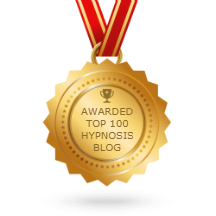by Herve Boisde
Session of hypnosis, Richard Berg
The last few decades have seen hypnosis become much more accepted as a valid and effective means of treatment for medical and psychological issues than ever before. While it still has a ways to go in terms of public perception, hypnotherapy is beginning to replace "stage hypnosis" as the common reference in popular culture.
Although hypnotists have existed in the western world for over 200 years, since German physician Franz Mesmer induced trance states to treat patients and developed a theory he called "animal magnetism" that was later referred to as mesmerism, the scientific establishment has only recently begun to embrace hypnosis for clinical purposes. This is partly due to the misguided notion that hypnosis was more for entertainment and used by stage performers on gullible participants. These presumptions aside, there is a long history of clinical use of trance states.
The term "hypnosis" was coined by Scottish surgeon James Braid in 1842 when he wrote Practical Essay on the Curative Agency of Neuro-Hypnotism and then later simplified the name to "hypnotism". Braid used hypnotism to successfully treat a wide variety of conditions, such as that of a 45 year old man who had suffered four years of limited mobility in his upper body following a spinal injury. Braid used hypnosis to alleviate pain in the spinal cord and arms, and after two months of daily treatment, the man was able to return to work. In 1892 the British Medical Association unanimously endorsed the therapeutic use of hypnosis, however medical schools and universities largely ignored the subject.
Hypnosis was used by field doctors in the American Civil War and was one of the first extensive medical application of hypnosis. Although hypnosis seemed effective in the field, with the introduction of the hypodermic needle and the general chemical anesthetics of ether in 1846 and chloroform in 1847 to America, it was much easier for the war's medical community to use chemical anesthesia than hypnosis.
In the early 20th century, French psychologist and pharmacist Emile Coué treated groups of patients for free using the "Coué method" of auto-suggestion. When asked whether or not he thought of himself as healer, Coué often stated that "I have never cured anyone in my life. All I do is show people how they can cure themselves.
Thanks in large part to the work of Milton Erickson, who is known as the father of modern medical hypnosis, the field has enjoyed an increasing amount of scientific interest in the past 30 years, as well as widespread clinical application for an array of medical and psychological purposes. Around the same time as Erickson's rise to fame, psychologist Ernest Hilgard, Ph.D., a former president of the American Psychological Association, set up the Laboratory of Hypnosis Research at Stanford University.
As additional research into the applications and results of clinical hypnosis is published in the coming years, it's acceptance and usage should become even more widespread.
Among the leading researchers in the field is Guy H. Montgomery, PhD, a psychologist who has conducted extensive research on hypnosis and pain management at Mount Sinai School of Medicine, where he is director of the Integrative Behavioral Medicine Program.
In one study, Montgomery and colleagues tested the effectiveness of a 15-minute pre-surgery hypnosis session versus an empathic listening session in a clinical trial with 200 breast cancer patients. In a 2007 article in the Journal of the National Cancer Institute (Vol. 99, No. 17), the team reported that patients who received hypnosis reported less post-surgical pain, nausea, fatigue and discomfort. The study also found that the hospital saved $772 per patient in the hypnosis group, mainly due to reduced surgical time. Patients who were hypnotized required less of the analgesic lidocaine and the sedative propofol during surgery.
"Hypnosis helps patients to reduce their distress and have positive expectations about the outcomes of surgery," Montgomery says. "I don’t think there is any magic or mind control."
Eric Willmarth, PhD, founder of Michigan Behavioral Consultants and past president of APA Div. 30 (Society of Psychological Hypnosis), says interest in clinical hypnosis is growing and more psychologists are learning how hypnosis can help their patients.
"It goes in waves," he says. "Right now, we’re on an upswing."

